DTP: C-CLEAR
Profile: Sophie Miocevich | Department of Earth Sciences (cam.ac.uk)
DTP: C-CLEAR
Profile: Sophie Miocevich | Department of Earth Sciences (cam.ac.uk)
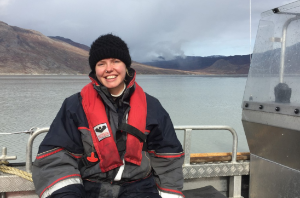
Postgraduate researcher in polar and marine biogeochemistry
University of Southampton (INSPIRE DTP)
Research project: Tracing iron cycling from the ice sheets to the polar oceans
Project: RaCE:TraX Radium in Changing Environments: A Novel Tracer of Iron Fluxes at Ocean Margins (PI Dr. Amber Annett)
Additional project: Policy researcher for Public Policy | Southampton enabling UK-Russian Arctic collaborations
UKPN committee member-at-large
Email: r.l.c.jones@soton.ac.uk
Twitter: @rhiofthesea
ORCiD ID
Research interests
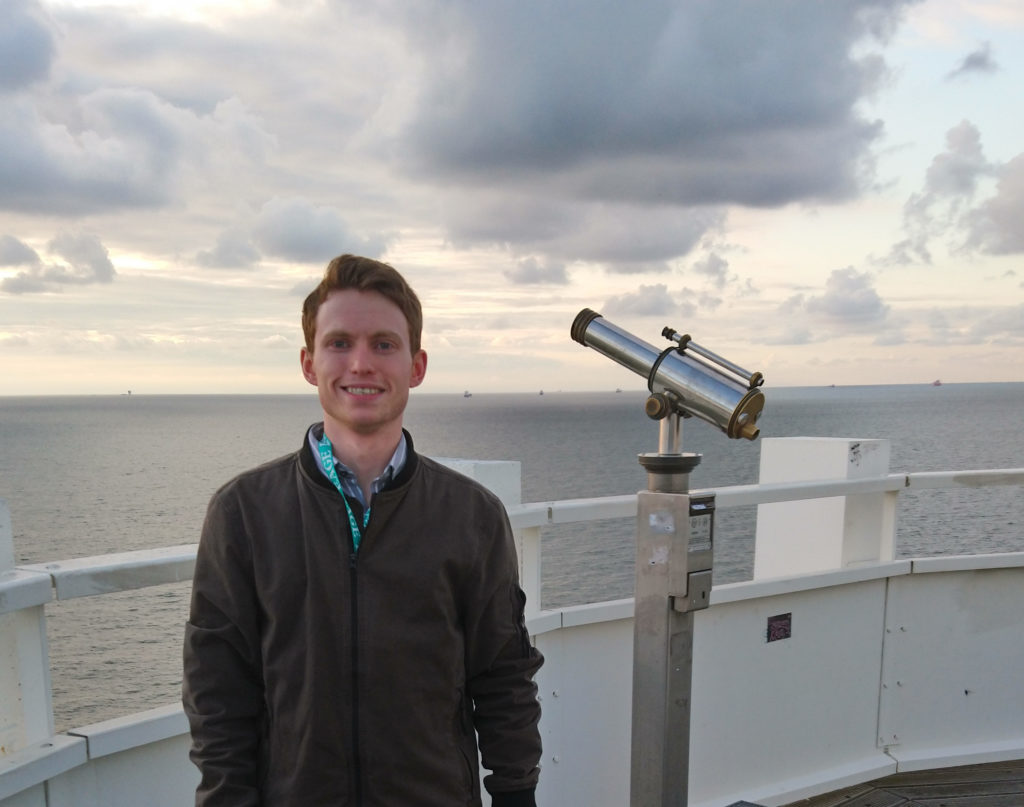
Having read for degrees in geology and geophysics I now work on a shared PhD project between the British Geological Survey and Lancaster University, where I focus on developing workflows related to long term geoelectrical monitoring on unstable slopes (man made or natural). Geoelectrical methods are sensitive to near surface moisture conditions and rock types which make them a not only a great tool for investigating landslides but other environmental problems (such as agricultural applications). Throughout this project I have worked on numerous challenges when processing geophysical data, not just related to my project, these include:
As part of my efforts of the past few years, I co-developed geoelectrical processing software ‘ResIPy’, which has recently been adopted by BGS (and universities) for training purposes. The aim of the software is to make processing geoelectrical data easier for non-specialists and specialists alike in the academic realm.
To wrap up, my key interests and skills are:
Research gate: https://www.researchgate.net/profile/Jimmy-Boyd
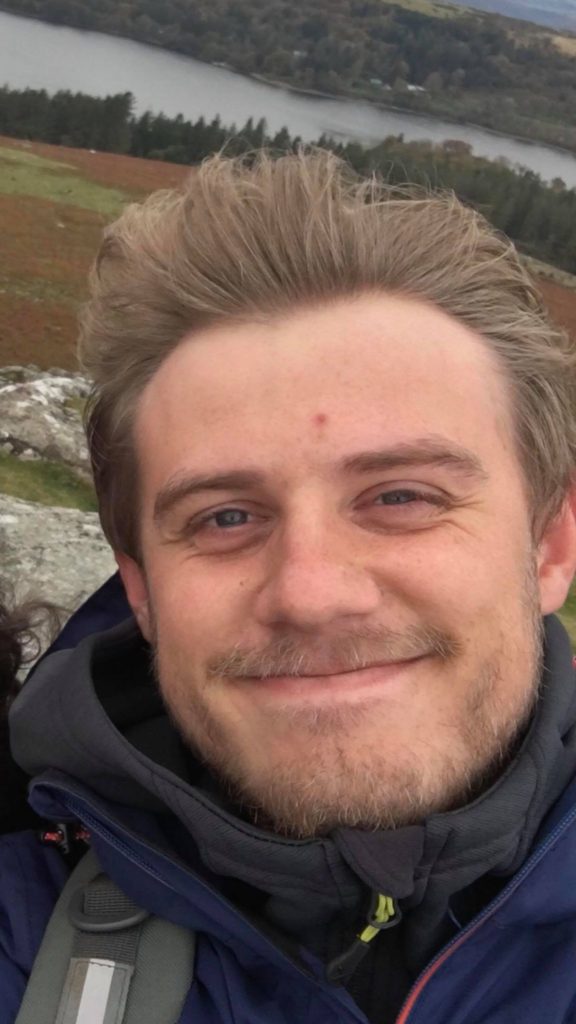
I am a 3rd year PhD student in Marine Ecology with the University of Essex and my research focusses on how habitat influences variation in distribution and survival of juvenile European sea bass (Figure 1). Sea bass are an economically important species across their range of the UK and Europe and are a consumer favourite in these regions. Recently, however, high fishing pressure and variable recruitment of new fish to the stock has resulted in stock declines, with sea bass now considered vulnerable to over-exploitation. Recruitment of new individuals is largely influenced by the survival and distribution patterns of juvenile and larval fish. These are thought to be majorly driven by environmental conditions, but how is largely unknown.
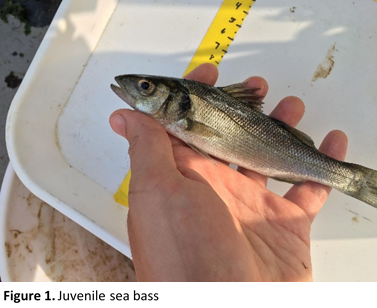
Understanding the distribution and survival of a species requires information on larval supply, habitat usage, habitat function and fish survivability. Bass use different habitats at different life stages. While adults use deeper offshore waters, juveniles are thought to use shallow estuarine systems as nursery habitat (that which promotes survival) during the summer months, but what habitat characteristics of the nursery habitats are important to sea bass is still unknown. The estuarine systems sea bass inhabit over the summer months are under immense anthropogenic pressures, as the result of agriculture and land reclamation, maritime activities, and waste management. As such, it is now more important than ever to identify key areas for habitat conservation and management, which starts with identifying what is important to vulnerable species, such as sea bass. Our findings to date challenge the current dogma that saltmarshes are the most important form of nursery habitat.
Over the last summer, my work focussed on assessing differences in juvenile bass abundance between different types of estuarine habitat; those that can be considered structurally complex like saltmarshes, shingle, and oyster reefs, or those that are simple such as mudflats and sand banks. This involved a combination of seine netting (Figure 2) in open habitats such as mudflats and shingle beds, and fyke netting (Figure 3) more closed habitats such as saltmarshes. This was carried out over both high and low tide at a number of sites within the Colne and Blackwater Estuary. The data gathered here will be used to determine important habitat for bass within nursery systems and its function, to better inform management decisions of coastal habitats.
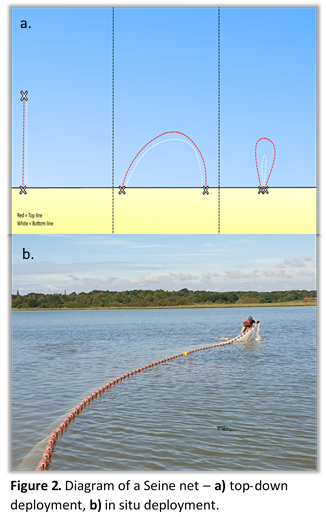
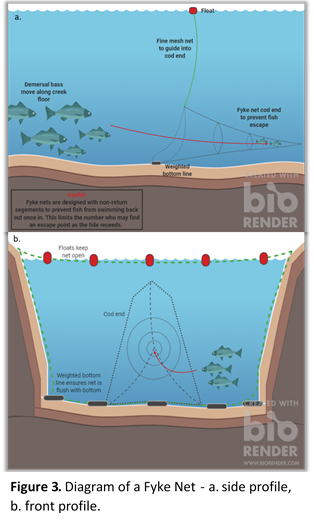
Recently, I concluded a growth performance experiment investigating how winter temperatures found in the estuarine habitats of the Essex coastline affect the growth of young-of-year bass. This is to be used alongside in-situ measurements of temperature throughout the winter, and seasonal catch data from previous years to determine whether these supposed nursery habitats are accessible to juvenile sea bass during the winter (or whether they must move to other habitats), and what the implications are for their survival and recruitment.
My work has now progressed to concentrating on the supply of larval fish to estuarine nursery habitats, specifically questioning whether larval fish employ some form of transport mechanism to actively move to settlement sites, or whether they passively move with ocean currents. It is hoped this will be used to better inform models of settlement patterns used in recruitment models. Finally, I will soon be using molecular methods to understand differences in diet and food availability between habitats and what are the implications for habitat function and fish survival.
If you would like to see updates on how my work progresses and see more of what I get up to then you can find me on twitter @seabassbase.
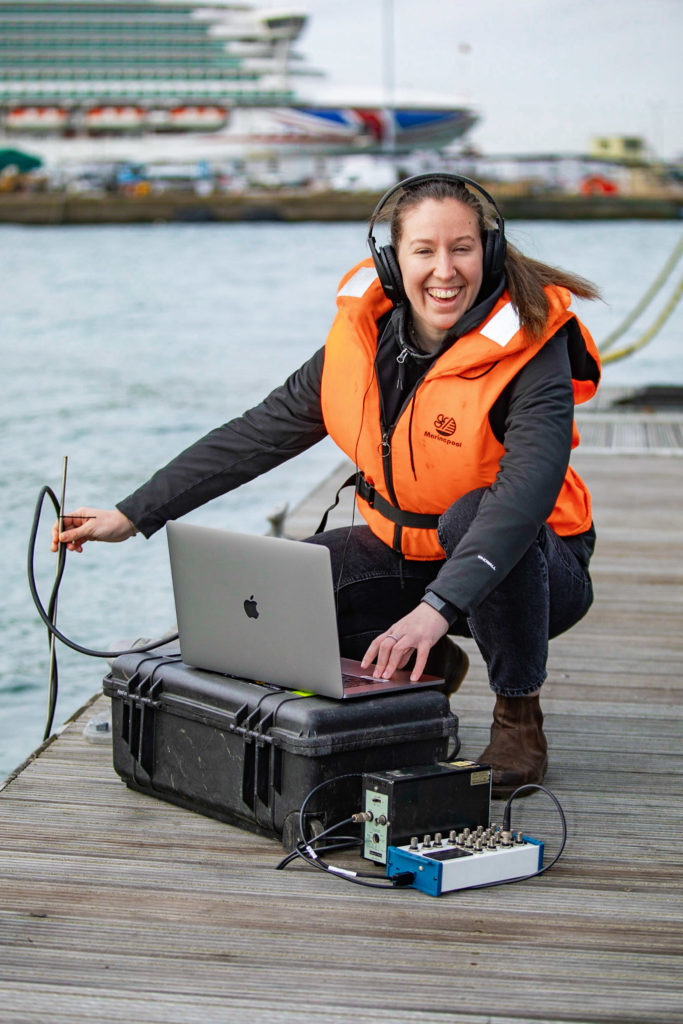
University of Southampton INSPIRE Cohort 1
PhD title: Automated Detection of Marine Sound Sources from Autonomous Vehicles.
Supervised by: Professor Jonathon Bull and Professor Paul White (UoS)
Advised by: Russel Wyn (NOC) and Dr Denise Risch (SAMS)
Project Aims:
To develop algorithms which automate the detection and classification of anthropogenic and biological sound sources in the North Atlantic.
Use the output of detection algorithms to explore the soundscape ecology of the West of Scotland, to understand the effect of anthropogenic noise on species occurrence and diversity, for application to MPA designation (EU INTERREG COMPASS project).
To quantify successful applications of passive acoustic monitoring on autonomous ocean vehicle technology for monitoring soundscapes.
Previous Education
Bsc Honours Marine Biology with Oceanography
Msci Marine Biology
Both completed at the University of Southampton
Research Interests:
Other side projects:
Applying Passive Acoustic Monitoring to Archaeological Site Scoping and preservation (Industrial Partnership)
PAM of Marine Soundscapes in UK waters (Industrial Partnership)
Contact:
Twitter: https://twitter.com/OceansE11en
Email: elw1g13@soton.ac.uk
University Bio: https://www.southampton.ac.uk/oes/postgraduate/research_students/elw1g13.page
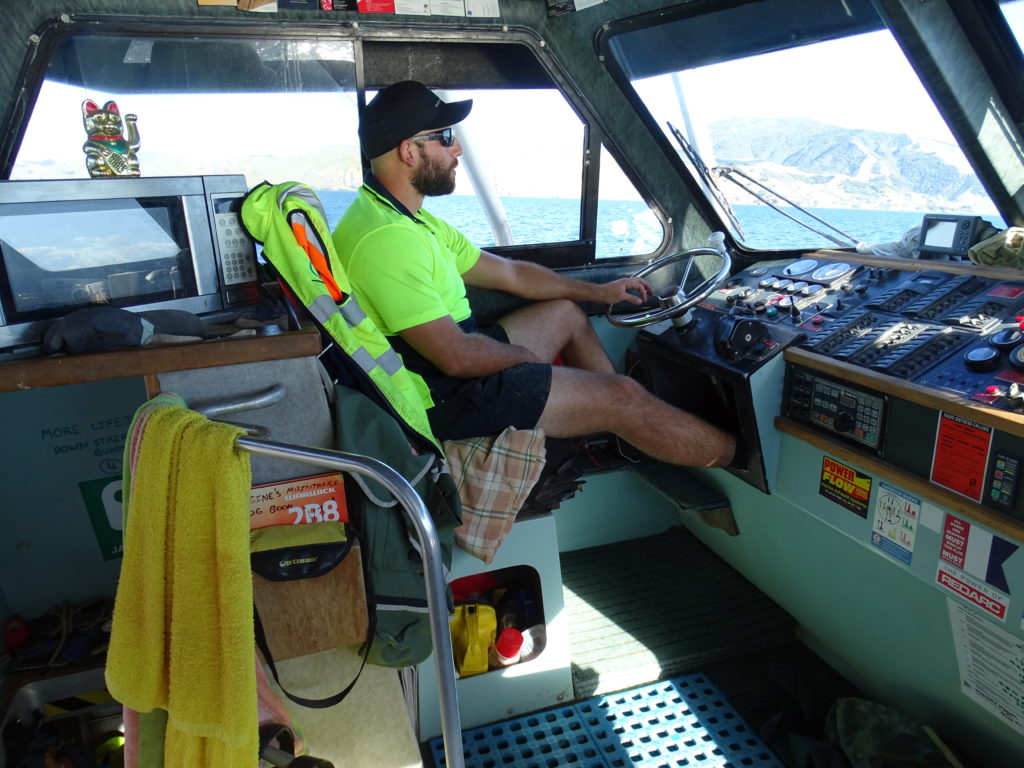
Alex is a PGR at the University of Essex, focusing on sustainable aquaculture. Having spent time employed in the environmental survey sector and in a range of marine and freshwater aquaculture settings he is now working in close collaboration with local oyster farmers and existing grants, such as the NOSy project. Using novel technologies he aims to increase our understanding of bivalve behaviours and develop tools to apply this in industry. Bivalve production is already one of the most sustainable forms of food production and Alex hopes to assist the industry and expand its ability to supply food to the growing population.
In addition to his core work, Alex is successfully collaborating with other groups, including AFBI, the Northern Irish Agri Food and Biosciences Institute, and colleagues at Burapha University in Thailand. Using the tools developed under the NOSy project and through his PhD research these collaborations aim to inform food safety and farm efficiency measures.
Links
Twitter: https://twitter.com/AlexShaks
ResearchGate: www.researchgate.net/profile/Alex-Shakspeare